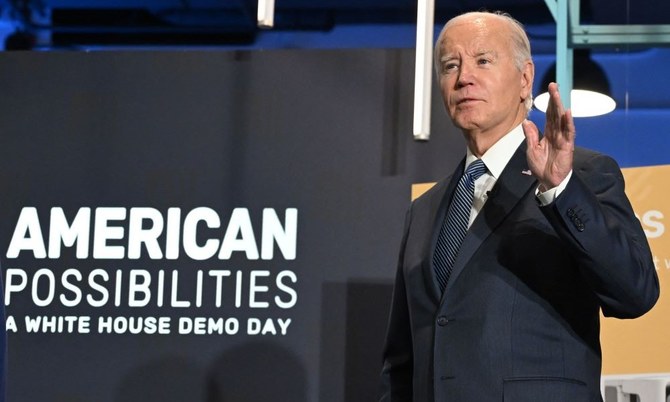
As Tunisia heads for a monumental election, planned for October this year, the next few months are filled with profound implications — and not just for the trajectory of the North African country’s quixotic “democracy.” Also at stake is whether the lived realities of Tunisians — after three tumultuous years under President Kais Saied’s hyper-presidency — will deliver a deafening indictment on their stolen aspirations or a whimpering capitulation to the status quo.
Tunisians tuning out of politics and the subsequent embrace of Saied’s approach of consolidating power in the presidency can be traced back through a series of chaotic, even puerile, legislative embarrassments that completely eroded faith in democratic processes. From 2019 to 2021, the Assembly of the Representatives of the People, rather than being a beacon of nascent democracy, morphed into an arena of constant turmoil owing to the actions of two entities, the Free Destourian Party and the Dignity Coalition. These parties, wielding a combined force of 38 seats in a 217-member assembly, prioritized spectacle over substance, engaging in verbal and physical altercations, thus coining the phase “bordelization” — i.e., making a big mess.
This theatrical brawling, publicly broadcast and widely discussed, was not just a visual metaphor for dysfunction but also became a lived experience of political failure for many Tunisians. With brawls initiated by representatives and physical assaults at Bardo Palace — dramatic incidents hardly congruent with principled leadership — public trust dwindled.
Saied’s ascendance, against this backdrop, was more than assured. His campaign, predicated on anti-corruption, anti-system rhetoric, appealed directly to a populace exhausted by its observation of a parliament that seemed more a circus than a sanctuary of democratic practice. His early actions once in office — notably, the suspension of parliament in July 2021 — were met first with relief and celebration, not trepidation.
However, interventions that were initially perceived as temporary measures against disorder began ossifying into permanence. This pivot did not occur in isolation — it was facilitated by an absence of viable alternatives offering both the promise of stability and a genuine commitment to tackling Tunisia’s economic and social crises systematically.
As a result, political disengagement in Tunisia at least partly stems from a recognition of a barren political field, in which leaders capable of addressing problems such as economic instability, public health and corruption seem mythological rather than credible electoral choices. This pervasive disillusionment has consequently become embedded in the country’s political DNA, shaping expectations and conceptions of governance amid the ruins of what was once a hopeful democracy.
Aspirational ideals for political pluralism must energize the initiation and implementation of genuine reforms.
Hafed Al-Ghwell
What now lies at the heart of Tunisia’s electoral malaise is a deep-seated belief among the citizenry that, regardless of who resides in Carthage Palace or what promises are made by aspiring populists, no one can deliver the changes so desperately needed in Tunisia. For many, the aspirations of the Jasmine Revolution now feel like distant memories, supplanted by the reality of economic stagnation and warped political discourse.
However, the more insidious and perhaps more enduring challenge to Tunisia’s democratic experiment is the creeping sense of temporary apathy turning into a more permanent disengagement among citizens. It is not simply a symptom of political fatigue; it is a rational response to a system perceived as fundamentally unresponsive to the needs and aspirations of a people so hungry for change. Thus, the official narratives that want to frame electoral participation as the hallmark of democratic legitimacy, ring hollow to people who have seen little material improvement in their day-to-day lives since 2011.
Considering these dynamics, the call to Western democracies is clear: The emphasis on the ballot box as the panacea for Tunisia’s woes is misplaced. While free and fair elections are a cornerstone of any democracy, they cannot in themselves rectify the deep-seated issues facing Tunisian society. The focus of international support should pivot toward encouraging and enabling the more arduous, but essential, process of real systemic reform and not subvert it by bankrolling economic malpractice or turning a blind eye to increasing repression.
Crucial areas ripe for reform include judicial independence, ensuring that the rule of law prevails over political expediency or interference. Strengthening courts would not only safeguard human rights but also bolster investor confidence, a key component for economic revival. Moreover, enhancing the transparency and accountability of public institutions can reconstruct the eroded trust between the state and its citizens. By supporting initiatives aimed at fostering good governance practices, Western allies can contribute to cultivating a political climate that values transparency over opacity.
Likewise, economic policies should pivot from austerity measures to sustainable development strategies that prioritize youth employment, technological innovation and renewables, thereby addressing the country’s immediate needs and laying the foundations for its long-term prosperity. For Tunisia, aspirational ideals for political pluralism must also energize the initiation and implementation of genuine reforms to help the country steer clear of short-term fixes in favor of lasting stability and growth. Promoting overdue reforms will fare much better than relying on dubious electoral processes in a repressive environment that prefers the status quo.
After all, true progress lies not in the vain hope of disparate electoral outcomes within a flawed system, but in the vigorous pursuit of reforms designed to tackle the core challenges facing Tunisian society today.
Hafed Al-Ghwell is a senior fellow and executive director of the North Africa Initiative at the Foreign Policy Institute of the Johns Hopkins University School of Advanced International Studies in Washington, DC. X: @HafedAlGhwell












